If you ever pay attention to dietary supplements or OTC drugs on the market, you'll find that many of these products are packed in capsules. In common sense, we differentiate capsules by what's inside them. But do you know the outer shells of these capsules are not created equal as well? In fact, based on the shell material, capsules can be classified into two types - HPMC (Hydroxypropyl Methylcellulose) and gelatin.

But what's the difference between HPMC and gelatin capsules? Which capsule type is better for you? Want to be a more informed buyer when picking your capsule supplements or drugs? Keep reading! This blog post covers everything you might wonder about.
What Are HPMC Capsules?
HPMC is a kind of plant-based cellulose. This water-soluble material usually stems from spruce or pine trees. Tasteless and odorless, HPMC has been used to create capsule shells for quite some time.
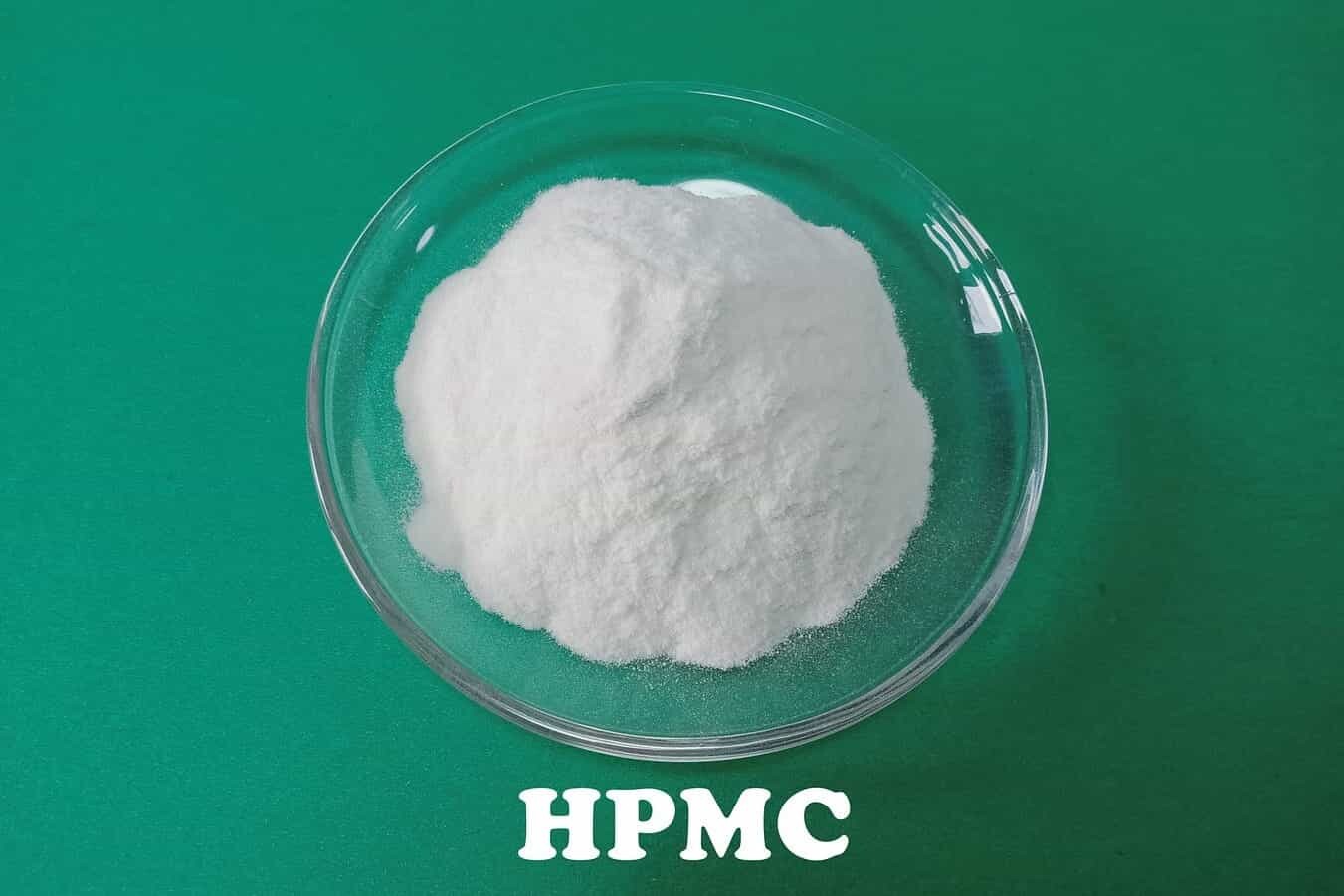
As we know, vegetarians or vegans usually eat no animal products. That means gelatin capsules are not suitable for these people. That's why HPMC capsules have become a good alternative to gelatin options.
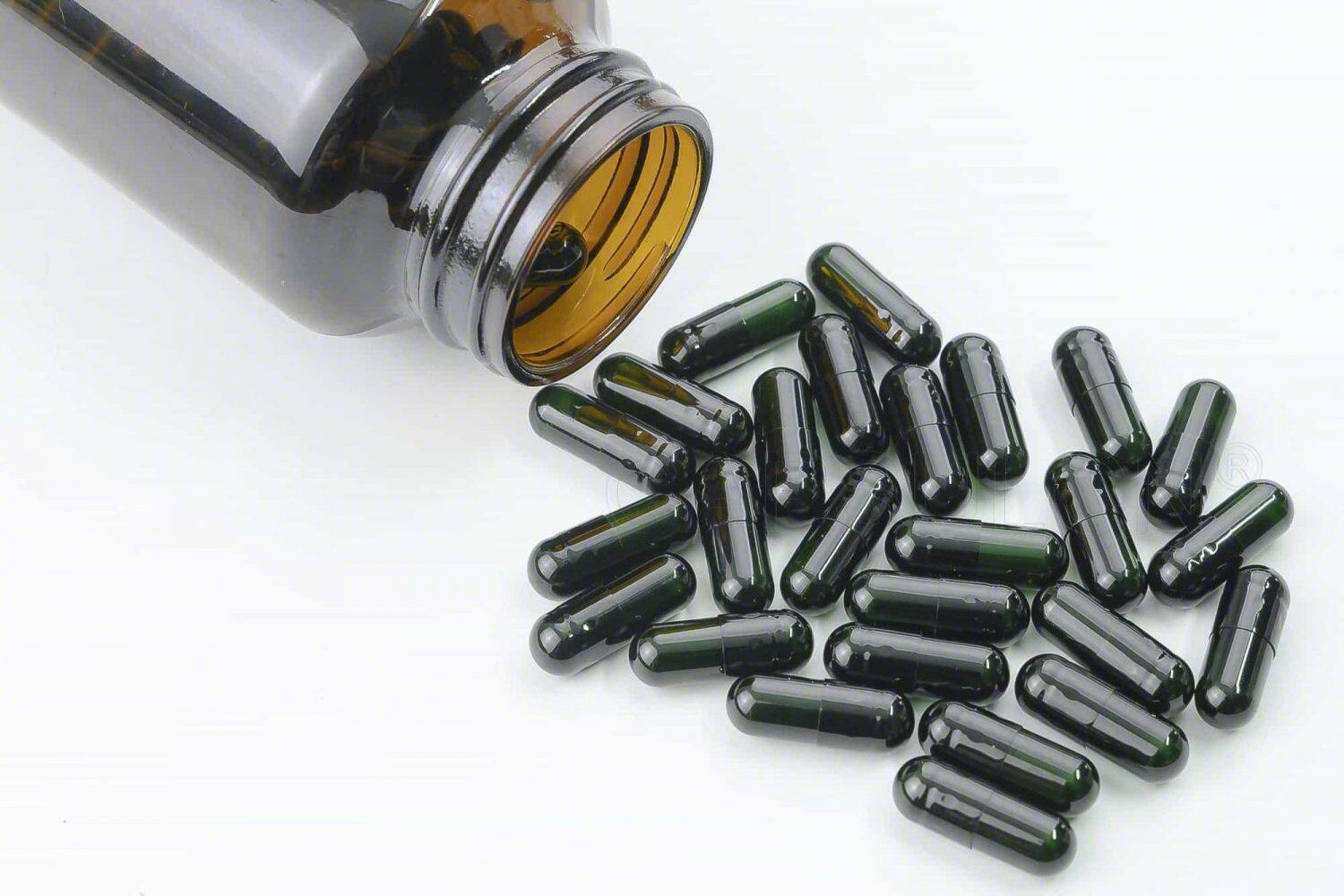
What's more? HPMC capsules are perfect for holding powdered vitamins, minerals, herbs, and medications. Plus, like gelatin ones, HPMC capsules are available in clear, opaque, and even colored options.
What Are Gelatin Capsules?
Compared to innovative HPMC ones, gelatin capsules have been around for over 100 years. These traditional capsules are made from animal-derived gelatin. This substance typically comes from collagen in the bones and skin of cows or pigs.
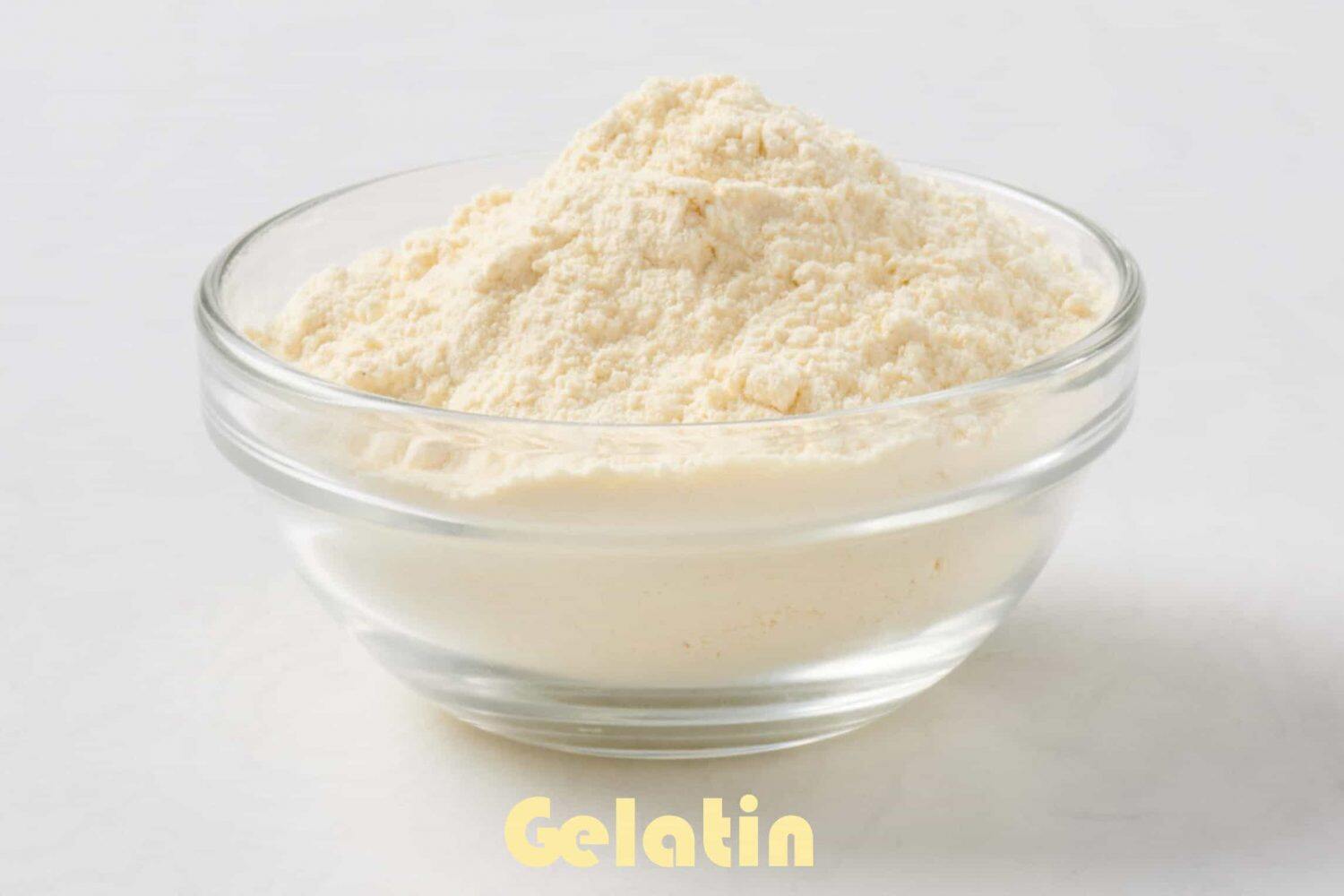
Since gelatin capsules are animal-based, they're not ideal for vegetarians and vegans. Plus, if you follow Kosher or Halal diets, these capsules are also not your go-to. But, no worries. Kosher and Halal-certified gelatin capsules are now available. So, check the packaging to see if the capsules are Kosher or Halal-approved before putting them into your shopping cart.
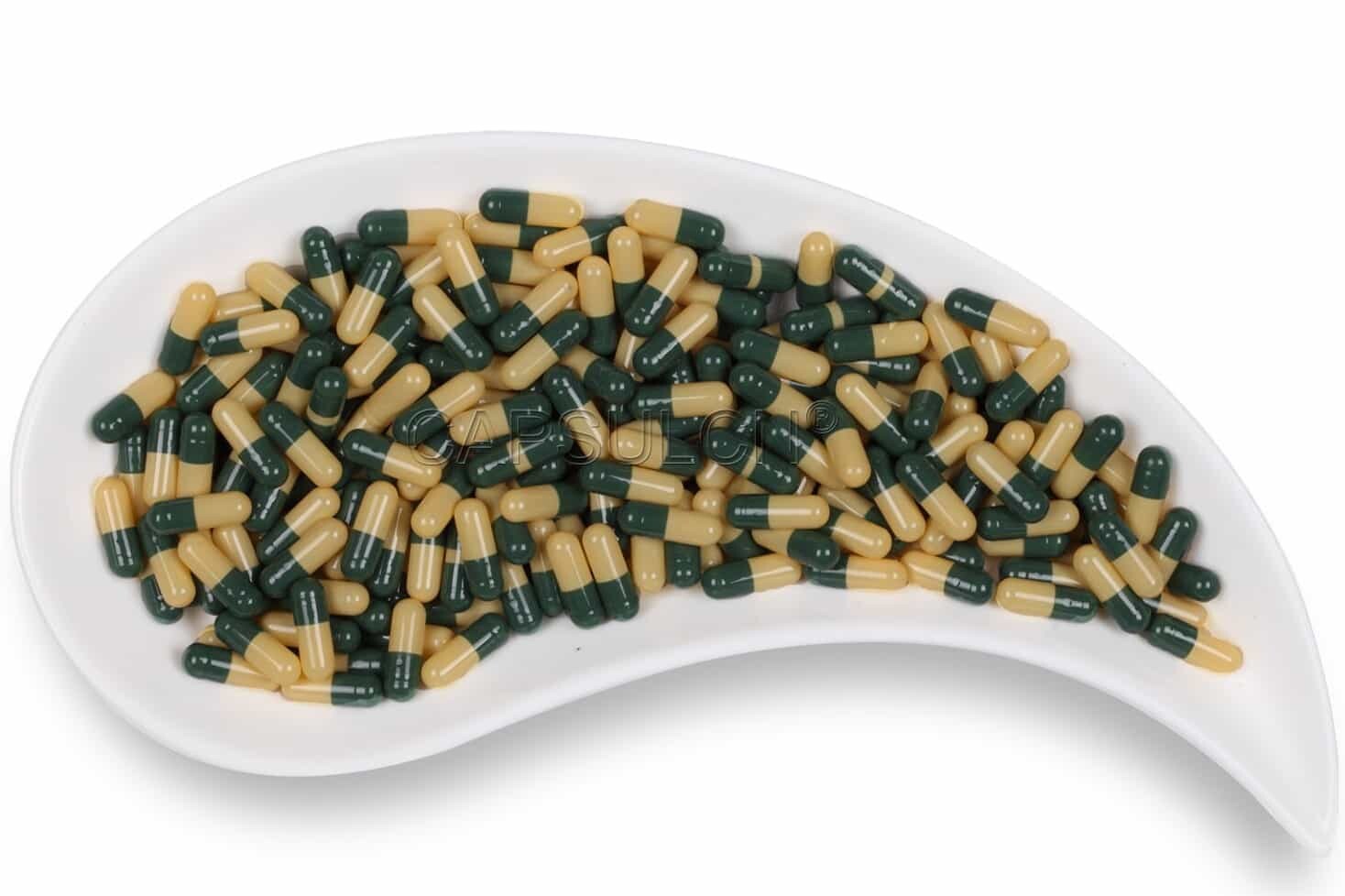
Gelatin capsules come in two types: hard-shell capsules and softgel capsules. The former is more versatile. They can encapsulate powders, granules, pellets, and even liquids. The latter is often used to enclose liquids or semi-solids.
Advantages of HPMC Capsules vs Gelatin Capsules
HPMC and gelatin capsules are the most popular capsule types because both have their own advantages. Let's break it down:
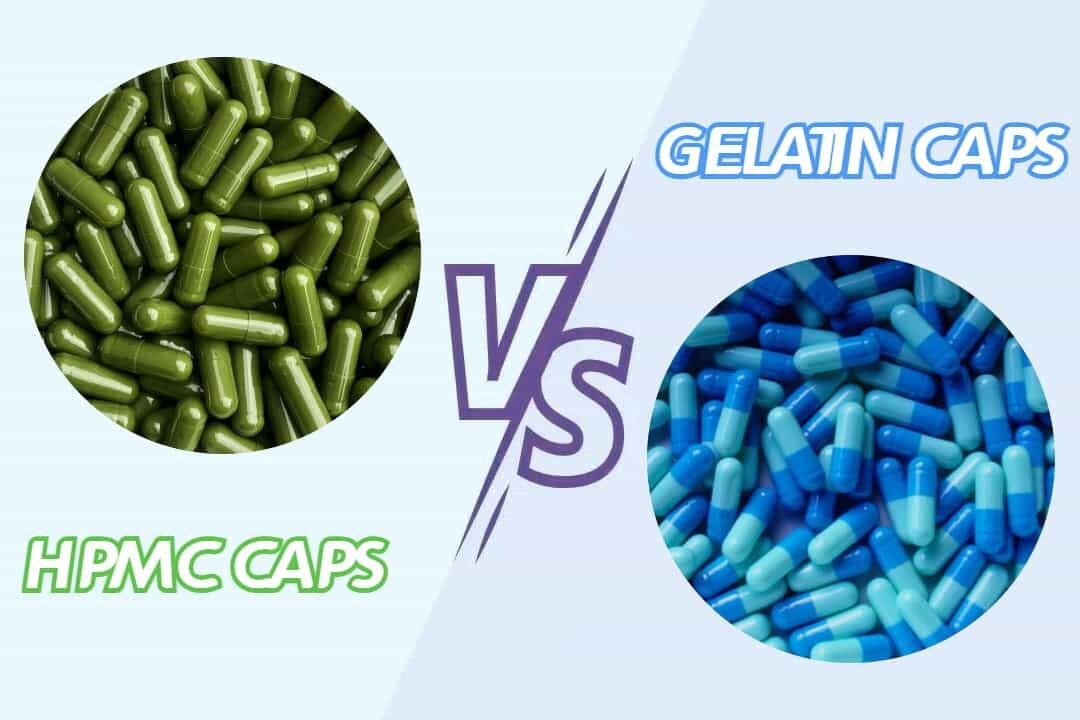
1. Plant-based vs. Animal-based
If you're a vegan or vegetarian, HPMC capsules are the clear winner. They're 100% plant-based, so no animal-based ingredients are included. Gelatin capsules, on the other hand, are sourced from animal collagen. For anyone who tries to avoid animal products, HPMC is the way to go.
2. Moisture-resistant
Humidity can be a real issue for capsule products. Gelatin is a hygroscopic substance. This means it can absorb moisture from the air. So, if exposed to a humid environment, gelatin capsules can get tacky. On this point, HPMC capsules perform way better. First off, HPMC is less hygroscopic. It's also more chemically stable than gelatin. This makes HPMC capsules withstand humid conditions. Still, proper storage is required for these capsules.
3. Allergy-friendly
Allergy is a severe reaction and sometimes can be life-threatening. So, being allergy-friendly is a must-have feature for capsule supplements or meds. Plant-based HPMC capsules are hypoallergenic. Animal-based gelatin capsules might trigger sensitivities. HPMC is gentler than gelatin. If you're sensitive to certain ingredients, HPMC capsules can be a safer bet.
4. Flexible on Religious or Dietary Restrictions
HPMC capsules are made from plants. They are suitable for vegetarians and vegans. Thanks to this feature, they can be consumed by people with religion-based dietary restrictions. It's easier for them to get certified as Kosher or Halal. Gelatin capsules can also be Kosher or Halal, but it can be trickier to certify due to their animal origins. That's why Kosher or Halal gelatin capsules are less common than HPMC capsules.
5. No Taste, No Odor
Generally, both HPMC and gelatin capsules are tasteless and odorless. So, they're both ideal for users who don't like unpleasant flavors or odors when taking meds or supplements. Plus, as both capsules themselves have no taste or odor, they help mask the strong smells of certain ingredients. However, some users reported that gelatin capsules can sometimes impart a slight aftertaste, especially in a humid environment. If aftertaste is a concern, HPMC capsules are the better choice.
6. Handling Sensitive Ingredients
Some ingredients are sensitive to moisture or heat. HPMC capsules are less hygroscopic and can withstand high temperatures. So, they usually outperform gelatin capsules when dealing with moisture or heat-sensitive ingredients. Plus, HPMC capsules are stable over a wide pH range. This enables them to hold substances that may be sensitive to acidic or alkaline conditions.
7. Cost-effective
Now it's gelatin capsules' turn to stand out. The ingredients used to make gelatin capsules are much cheaper than HPMC. Plus, as a traditional choice, the manufacturing technology of gelatin capsules is well established. This often results in lower costs. HPMC capsules, on the other hand, require more expensive ingredients and a more complex manufacturing process. These can lead to higher overall costs.
Key Differences Between HPMC and Gelatin Capsules
To provide you with a more summarized understanding of HPMC capsules vs gelatin capsules, I will compare and highlight the key differences between them. Now, let's take a look at the comparison table.
| Feature | HPMC Capsules | Gelatin Capsules |
| Source | Plant-derived cellulose | Animal by-products (usually bovine or porcine) |
| Dietary Restrictions | Suitable for vegans and vegetarians | Not suitable for vegans or vegetarians |
| Religious or Cultural Considerations | More flexible on Kosher and Halal standards | Can be certified Kosher and Halal, but the animals must be slaughtered according to specific religious rituals |
| Allergen-Free | Yes, typically hypoallergenic | May contain allergens |
| Stability in Heat | More stable in high temperatures | Less stable; can soften or melt in heat |
| Moisture Sensitivity | Less sensitive, good for moisture-sensitive ingredients | More sensitive to moisture, can cause softening or stickiness |
| Taste and Odor | Neutral, no taste or odor | Typically tasteless and odorless |
| Aftertaste | Generally no aftertaste | May have a slight aftertaste |
| Dissolution Time | Slightly longer dissolution in the body | Generally dissolve faster |
| Transparency | Often clear, semi-transparent, or opaque | Usually opaque, but available in clear versions |
| Applications | Ideal for plant-based supplements, probiotics, and moisture-sensitive products | Commonly used for vitamins, fish oils, and pharmaceuticals |
| Customization | Can provide controlled release options | Standard release properties |
| Market Appeal | Broader appeal due to dietary flexibility | Established but limited to certain diets |
| Cost | Generally more expensive than gelatin | Usually less expensive |
| Shelf Life | Longer shelf life, less prone to degrading | Shorter shelf life, can become tacky or brittle over time |
Which One Is Right for You: HPMC Capsules vs Gelatin Capsules
So, how do you choose between HPMC and gelatin capsules? In other words, what are the key factors to consider if you want to make the best decision?

1. Cost Considerations
First off, what's your budget? If you're on a tight budget and have no special requirements, gelatin capsules are generally a more affordable choice.
2. Dietary Restrictions
Think about your dietary preferences. If you're vegetarian or vegan, HPMC capsules are likely the better choice. If not, gelatin capsules can work just fine.
3. Ingredient Sensitivity
If your supplement ingredients are sensitive to moisture or heat, HPMC capsules might be the way to go. They can help maintain the potency of certain supplements.
4. Aftertaste and Flavor
Are you sensitive to smells? While both capsule types are generally tasteless, some users report a slight aftertaste with gelatin. If this is a concern for you, go for HPMC capsules.
5. Market Availability
Consider where you typically shop for supplements. Gelatin capsules have been around longer and are often more widely available. HPMC capsules might be easier to find in health food stores or online.
6. Cultural and Religious Beliefs
Lastly, don't overlook any cultural or religious dietary laws that may apply to you. HPMC capsules are often more acceptable across various beliefs due to their plant-based nature. Yet, gelatin capsules may not meet the requirements for certain religion-based dietary restrictions. Be sure to check the label of your supplements.
Final Thoughts
There's really no one-size-fits-all answer when choosing between HPMC capsules vs gelatin capsules. It's all about finding the right fit for your needs. So, next time you're picking up a supplement or medication, take a moment to think about the key differences between the two. And remember, it's always a good idea to talk with a doctor or pharmacist first.